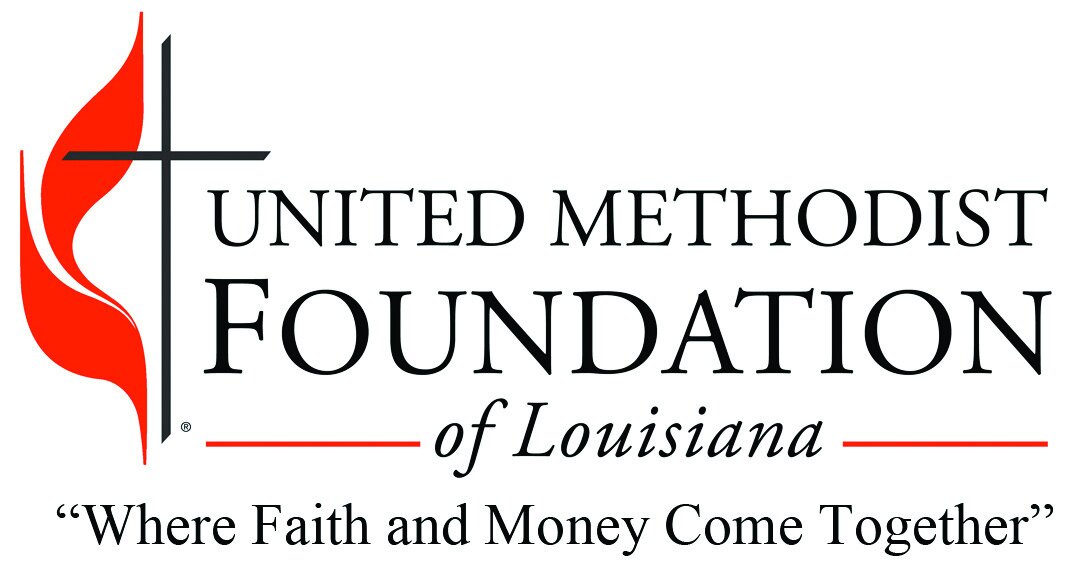Giving is an Act of Faith
Discipleship Ministries of the United Methodist Church
As Christians, we share in the affirmation that all we have comes from God. It is our joy to take care of God’s trust in us for our family, for ourselves, and for the world. When we recognize God in all we have, all we are, and all we do, giving becomes an act of faith.
HOW WE CAN RESPOND?
One option we have in acting on that faith is to include our church or other United Methodist ministry in our plans. Those plans might include a gift now or a gift in the future. To make a faith gift in the future, we will want to prepare a will or other related estate planning document.
As United Methodists, we believe that the tithe is the Christian standard of giving. That standard extends to our future giving as well as to our current giving. As you accomplish your estate plan, we encourage you to consider the tithe in your will or other documents.
Consider this material carefully and prayerfully. We hope it will answer some of your questions and stimulate you to seek additional guidance.
CHARITABLE GIFTS
There are many ways to make charitable gifts, both during life and at death. As our tax laws change, new ideas continue to be developed. However, the most important alternatives today include the following:
OUTRIGHT GIFTS: A Common Choice
The most popular method of making a charitable gift is through an outright transfer. Usually, outright charitable gifts are in cash, but any type of property, including stocks, bonds, real estate, and collectibles may be given, even to your local church.
REAL ESTATE: A Valuable, Often Overlooked, Opportunity for Giving
Any real estate can be given to your church. In fact, a gift of a personal residence or farm may be made to your church now, while you continue to live there during your lifetime. A current income tax deduction may still be available. Outright gifts of other real estate can also qualify for an itemized charitable income tax deduction.
LIFE INSURANCE: An Opportunity to Give Beyond Your Means
Many individuals name their church as the owner or beneficiary of a life insurance policy. This gift may be much larger than any gift they might otherwise be able to make. Some individuals, who want their life insurance proceeds paid to their family, name a church or other ministry as the contingent beneficiary to receive the proceeds if the family members do not survive the insured. A church may also be named as the recipient of annual dividends from insurance policies. All of these gifts occur without probate or other administrative delays.
RETIREMENT FUNDS: An Increasingly Popular Item to Give
More and more people are naming their church as a contingent beneficiary of their retirement plans or individual retirement accounts, to succeed other family members. If you and other family members die before receiving all of the funds, the church receives the remaining property.
BANK ACCOUNTS: An Inexpensive, Flexible Gift
A popular way to make a charitable gift is to open a bank account in trust for your church. The person who opens the account has the right to make deposits and withdrawals or to close the account at any time. The remaining balance at death automatically becomes the property of the named charity. This occurs without probate or other administrative delays.
LIFE INCOME GIFTS: Set Up to Provide Income or Life Use to Your Beneficiaries Or to the Church
Five primary types of life income gifts:
1) The Charitable Remainder Unitrust is an irrevocable transfer of property to a trustee who pays you and/or your chosen beneficiaries an income for life. The income is a fixed percentage of the annual fair market value of the trust. Thereafter, the trust assets become the sole property of the charity.
2) The Charitable Remainder Annuity Trust is similar to a Charitable Remainder Unitrust, except the annual income paid to the beneficiary is a fixed annual amount.
3) A Pooled Income Fund provides annual income for your life or the life of your chosen beneficiaries. The amount will be what the charity gets when investing your funds together with the gifts of others who make similar gifts.
4) A Charitable Gift Annuity provides for a fixed annual payment for the life of the beneficiaries.
5) A Charitable Lead Trust provides the income to the charity for a period of years, with the remainder coming back to you or going to your chosen beneficiaries.
In each of these cases, itemized income-tax deductions result. Responsibility for investing your gift may also be shifted to the charity. Discuss these advantages with your tax advisor.
CHARITABLE BEQUESTS AT DEATH USING WILLS OR TRUSTS CAN LEAVE A CHARITABLE LEGACY
Outright gifts at death through a will or trust are perhaps the most common method of making a bequest at death to a charitable institution. This may be a fixed dollar amount, a percentage of the estate, a distribution as a successor to a deceased beneficiary, or a gift as the final taker if all named beneficiaries are deceased.
ACT NOW!
When you have your estate planning documents prepared, consider asking your lawyer to insert a provision leaving a bequest to your church. You may want the gift to be an endowment, where the church will spend only the income, reinvesting the principle forever. Because laws vary from state to state, you will want to talk with your attorney and other advisors as you plan your estate and financial affairs.
